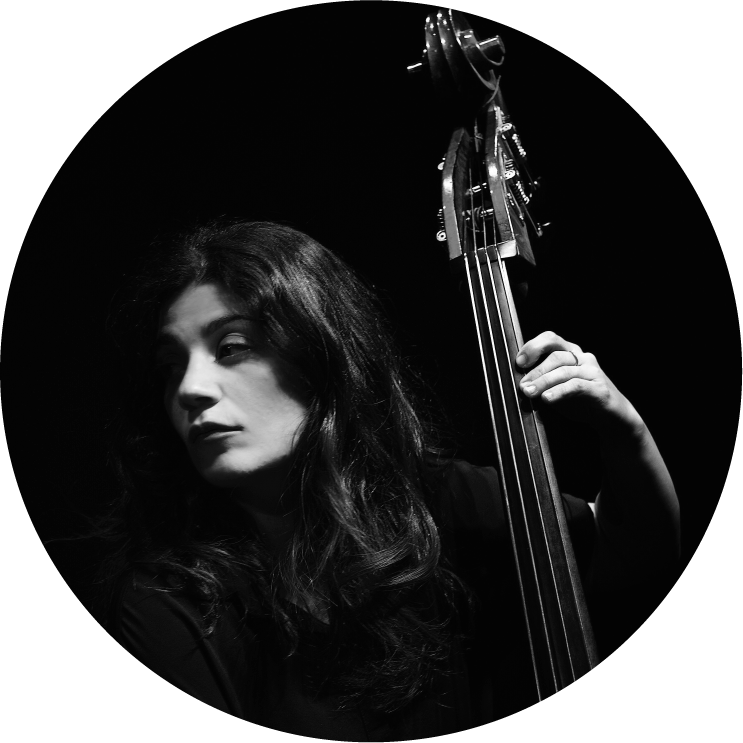Album review: Ian Patterson, All About Jazz (IE)
Read at: All About Jazz
“For her debut as leader, bassist Ilaria Capalbo takes as her muse the ancient city-state of Carthage, the former Mediterranean powerhouse, in what is today modern Tunisia. Repeatedly sacked by a series of invaders, Carthage's colorful history, and its near mythical figurehead, queen Alyssia (or Dido), has inspired writers, poets and composers since Roman times. It is a bold canvas on which to inscribe musical notation, particularly for a debut, but the Stockholm-based Italian's writing for this lithe quintet, full of swing and improvisational fires, is a match for her thematic ambition.
A heavy concept album then? On the contrary. Bright melodies and sympathetic counterpoint abound, while the rhythms—steered by the leader's spare, earthy sound and drummer Fredrik Rundqvist's nuanced animation—are never cluttered. And while Thomas Backman (alto saxophone and clarinet) and Fredrik Nordstrom (tenor and baritone saxophones) do create sparks with their freely improvised exchanges, their deft harmonic lines color these eight originals to equal degree. This balance between alluring melodicism, unhurried grooves and bursts of unrestrained release is perfectly encapsulated in the opening track, "Beloved," which features a solo of fluid luminescence from guitarist Andreas Hourdakis and additional muscle from guests Tobias Wiklund on cornet and Mats Aleklint on trombone.
It might have been tempting for Capalbo to harness the full power and range of the septet throughout Karthago, but the remaining compositions for her core quintet provide a convincing argument for less is, well, plenty already. Beguiling, the episodic "Part 1. Ab Radice;" bowed bass, whispering cymbals and lowing horns bookend a flowing narrative, with unobtrusive pulses and horn motifs underpinning Hourdakis' sparkling, though measured solo. On the slow waltz of the title track, noirish, prowling bass and soft brushes guide the horns' slowly curling melodicism. The spell of their tender reverie is punctured by Hourdakis' exhilarating interjection, a tempest that whips the horns into feverish response. After the storm, however, the gentlest of codas.
Sparer still, is the vignette "Mare Nostrum," an intimate duet between bassist and guitarist, while the bare-bones architecture of "Scintilla" invites solos from Nordstrom on tenor followed by the ever-lyrical Capalbo, and, over a unified ostinato, a brief flurry from Rundqvist. Backman widens the sonic palette on the bass-and-brushes steered ballad "Moth," his clarinet lines transitioning from dreamy nostalgia to gentle playfulness. Form and freedom meet head-on in "Part II: Ago Radices," with spiralling horns letting off steam over a bass-cum-guitar vamp. Here, Hourdakis again shines, down the home stretch, as the horns return the supporting favor. "What Remains of Those Days" is a tale of two halves as Backman and Hourdakis' understated elegance gives way to Nordstrom's stormy exclamations on baritone saxophone, placing an emphatic seal on an impressive album.
With her debut Capalbo delivers an unequivocal statement of intent. This is a mature sounding, seductive work of immediacy, depth and beauty.”
— Ian Patterson
